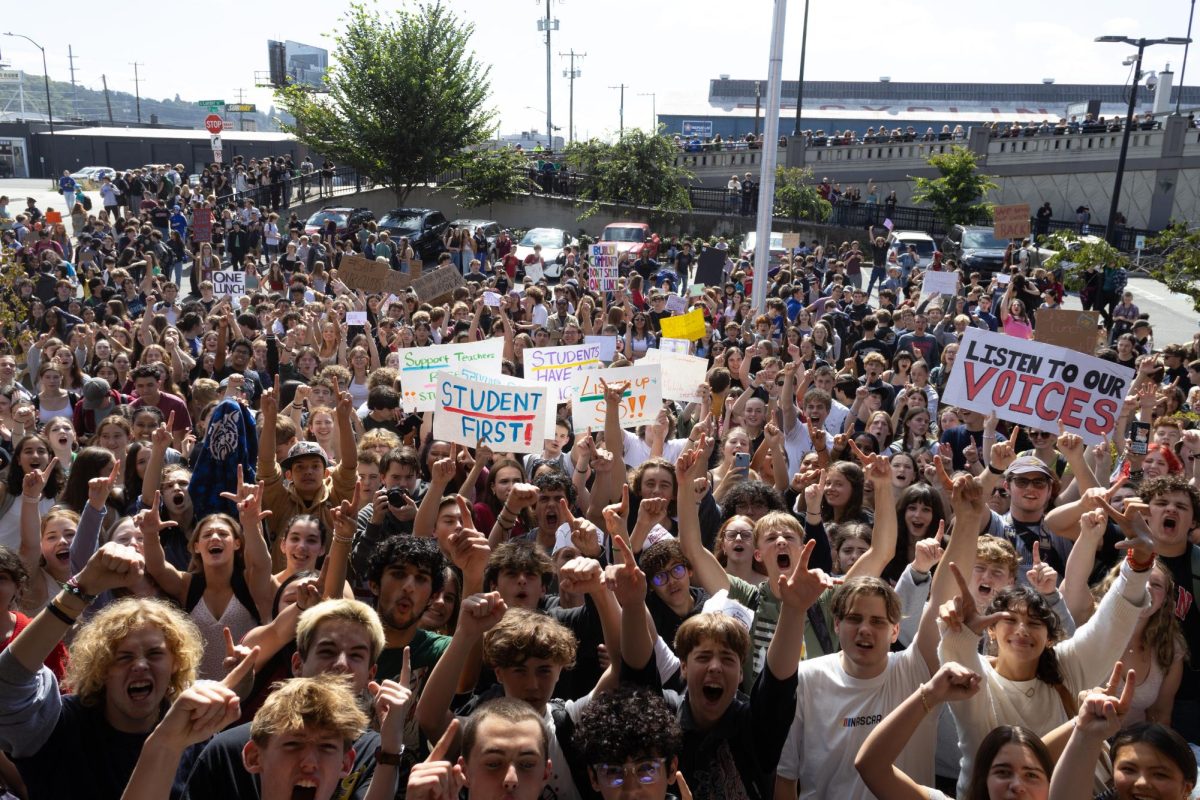An increasing amount of the younger demographic are not taking part in the most recent Seattle city council elections, which has drawn attention many. Records show that although they comprise 10% of Seattle’s population, only 3% of those aged 18 to 24 actually voted. This reveals a worrying trend in civic engagement among young people in Seattle.
“The reason the younger demographic has a low turnout rate is very simple,” said Shawn Lee, AP United States History teacher. “City level elections have very little impact for young people. A lot of them will likely go to college in a different city so they have very little stake in these elections.”
Lee sheds light on a combination of factors contributing to this decline, ranging from low stakes to a growing disillusionment among young people regarding their impact on local politics. The void of targeted campaigns tailored to resonate with the younger demographic is seen as a critical factor in the disengagement observed.
“The voter turnouts for young people have always been low,” Lee said. “They are a very small demographic that politicians don’t need to target.”
Moreover, a prevailing sentiment of disillusionment and skepticism toward traditional politics has been echoed among young voters. Many cite a disconnect between their priorities and the election agendas of candidates, leading to a lack of motivation to participate actively in the electoral process.
“I don’t care about the City Council Election,” senior Connor Osbourne said. “Why would I ever care about it? None of that even affects my life.”
The majority of the younger demographic is uninterested in local politics. This obstacle highlights a significant barrier that prevents effective engagement with the younger demographic and emphasizes the need for political agendas to be in line with youth concerns.
“By comparing the action of voting to the reward of being one in a million voices that count, it isn’t even worth it,” senior Rishab Nagarkar said. “I also just have better things to worry about. I’m too busy with wrestling, college applications and homework to worry about a city election.”
Nagarkar’s perspective underscores a prevalent sentiment among some young voters who view the process of voting as a chore and the impact of their singular vote as negligible in the grand scheme of the democratic process. This perception highlights a significant challenge in conveying the value and impact of individual participation in shaping local governance.
“This isn’t even a big of a deal as people make it to be,” Nagarkar said. “City Council has been making decisions without my input for years and the city is still running.”
Nagarkar sheds light on a common perception among many young voters, emphasizing a sense of insignificance regarding the impact of their participation in local elections. This point of view reflects a broader obstacle in addressing the relevance and significance of individual contributions to the larger fabric of the city’s democratic process.
The dwindling participation of young voters in the Seattle city council elections serves as a moving reminder of the imperative to rejuvenate political engagement among the youth. Bridging the gap and supporting their active involvement is key to creating a more inclusive and diverse governance that addresses the various needs of Seattle’s diverse population.



















